Science Can Be So Impressive
We live in a world that is natural to us. This natural world has its own laws and we are subject to them. But since man is curious by nature, he has been trying to explore this nature for more than 150 years and (re)discovered science. But the more we try to understand nature and its laws, the more questions we ask and the more amazed we are by the world we are trying to explore. Some things just seem too impossible and some things impress us and some of these things are just unimaginable - but it is as it is.
For example: we can easily imagine the three spatial height length and width. Albert Einstein found out that time has to be added as the fourth axis of the three-dimensional coordinate system with xyz to better describe the world mathematically. But how can you imagine an another dimension?
Since then, it has not possible to prove any further dimensions correctly. But there is also the string theory. This string theory, for example, requires 11 dimensions and further developed string theories already require 27. Does the universe really have more than four dimensions? How can we prove them? And how can we imagine them?
Another very impressive phenomenon is the birth and death of a star. When a star with enormous mass has used up its energy and collapses due to gravity, a so-called mysterious black hole is created. You must imagine it this way: in order for our sun, which has a diameter of 14 million kilometres - 109 times larger than the earth - to be a black hole, it would have to be compressed to a diameter of three kilometres. This action causes the black hole to swallow everything. Not even the light can escape. Space and time are deformed by this structure. This phenomenon can bypass the laws that actually keep everything upright. it bends space and time.
Some physicists claim that in such a black hole so-called closed space time loops can develop and through this perhaps time journeys would be possible. It is simply unbelievably exciting to think about where you would go if you jumped into a black hole. Of course, if you ignore the fact that you would be dead on the spot. Some also claim that there are higher dimensions in these black holes.
We humans could already observe how black holes swallows matter or spit it out, but so far nobody could observe the creation and evolution of a black hole. We don't know anything about them except our theories. The reason is that their development does not take place in seconds or hours or days or weeks, but in thousands of years. I think black holes will remain a mysterium for us...
But another plausible theory tells us that when a black hole has enough matter in it, it starts to form itself into a new star with a small big bang and the matter it doesn't need anymore starts to circle around this newborn star. This dust and gas of matter starts than at a long period of millions of years to form new planets and a whole new star system emerges.
The circle of life...
While we're at matter: Did you know that we do not yet know everything about matter? For the matter that we do not yet know, researchers have established theories and mathematically proved them, but most of them we have not discovered.
One mindblowing example:
The mass of the universe consists of a strange matter, which is not known to scientists. This means that everything we can see and perceive in the cosmos is only five percent of the whole. The remaining 95 percent consists of so-called dark energy and dark matter. Our earth, the people, the nature, the moon and the stars - all consist of the matter we know, but that's only five percent. The rest of the universe is therefore invisible and a big mystery.
If you think about that again and then go into it deeper, the following fact is even more incredible: We look at the universe and see how many stars there are and how much mass there simply is. We have just said that everything we see is only 5 percent of the total matter of the universe, but now comes the incredible: the average density in the universe is one particle per cubic meter.
That is, if you spread all the matter in the universe over the whole universe, there would only be one particle per cubic meter. You have to know that in a cubic centimeter of air here on earth have usually 100 trillion particles.
How empty must the universe be?
Are you beginning to understand how big the universe is?
...and it is getting bigger and bigger...
But the research of matter and to understand the smallest elements of being, so the research on atoms and particles is not new and the insights were just unbelievable. Werner Heisenberg found out that you can't observe the smallest particles like an atom or an electron without influencing their state. Because the light that you use to determine the position of the particles already influences this world. So you cannot determine the initial state, i.e. the exact real position and speed of the particles at the same time, but only the influenced state and only one thng: the position or the speed - it is not possible to determine both.
But Heisenberg's uncertainty principle says much more, namely that a small particle like an electron or an atom actually has no place at all, but only has a certain place and a state when the observer looks and asks for a state. This means that nature sets a limit there and does not tell us everything.
Because if it were possible to determine the speed and the position at the same time, it would be possible to determine the future position and speed of the particles and this would mean that you can predict the future. From the smallest particles to our lives and the evolution of the universe.
Heisenberg opens up with his researchs a whole new direction in physics, namely quantum mechanics, where particles can be in several places at the same time or can be connected to each other in spite of a far away distance and they also communicate without regard to distance and time.
It seems that our laws of nature only apply to us humans. And quantum mechanics shows us more and more that our reality is actually only an illusion...
So somehow the question arises whether the moon actually exists if you don't look at it?



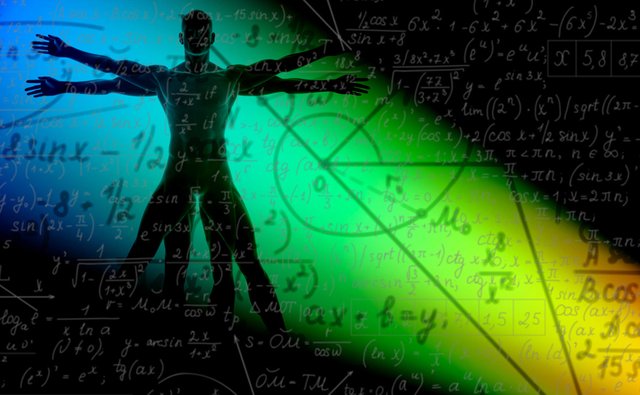
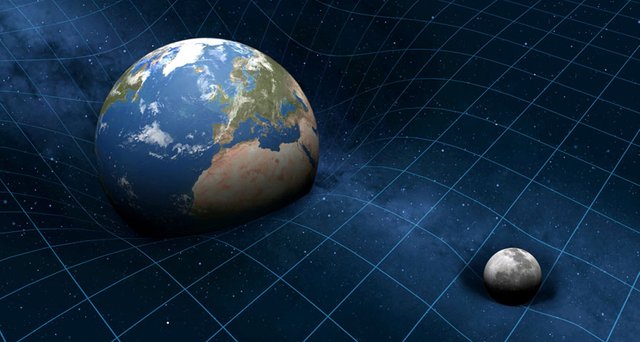
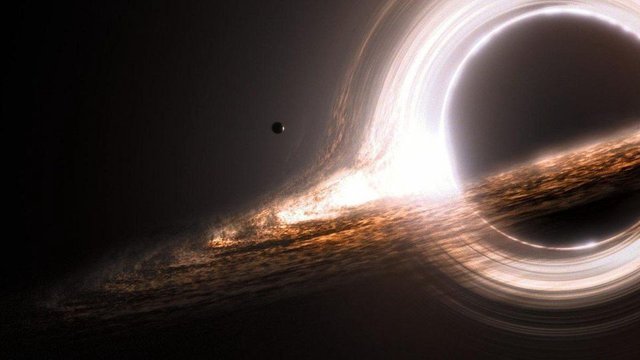
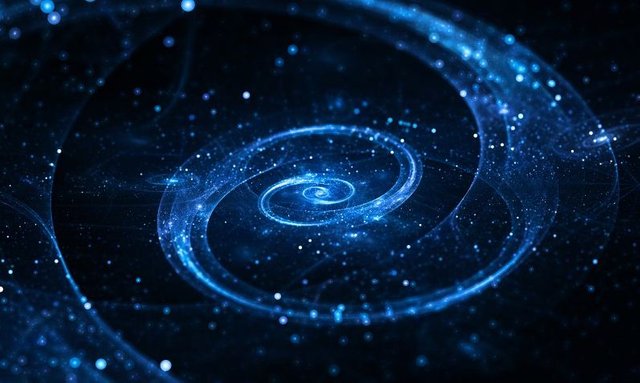
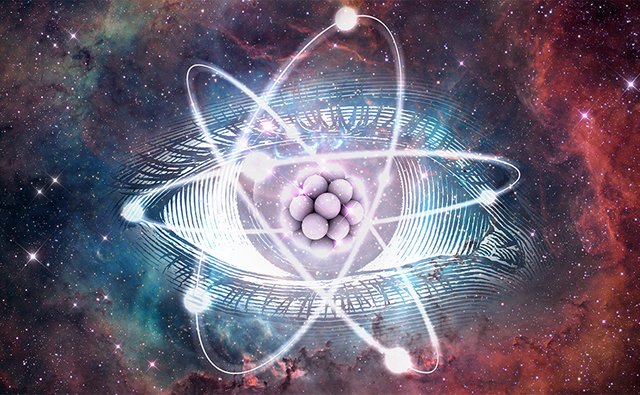
The sun is 1.4 million km, not 14 =P
Also to be clear, the sun will never become a black hole since it lacks sufficient mass; stars should be at least 20x the mass of our sun for that to happen.
It's a shame you didn't dig into Magnetars and neutron stars, some of the most impressive things in the Universe!
A Neutron star can spin completely around about 43,000 per minute,
or 700 times per second. 25% the speed of light, spinning. Try to imagine that without going insane.
damn, a typo :)))
People understand things easier when you explain things to them with things they already know. But yes, you are right, so that our sun becomes a black hole, it still has to gain some more mass...
shame on me :))))
maybe i will tell about them at a later time. there is still a lot to tell, which is really impressive.
and thank you to look by @mobbs ;)
The moon does exists even when we don't look at it, because we can see tides caused by it.
I wanted to allude with that to Schrödiger and his cat :)
Thank you for this valuable article. I learn alot by following you.
Posted using Partiko Android
thank you
I find it very interesting, science is incredible
Hi, @oendertuerk!
You just got a 1.62% upvote from SteemPlus!
To get higher upvotes, earn more SteemPlus Points (SPP). On your Steemit wallet, check your SPP balance and click on "How to earn SPP?" to find out all the ways to earn.
If you're not using SteemPlus yet, please check our last posts in here to see the many ways in which SteemPlus can improve your Steem experience on Steemit and Busy.
Follow me i follow back
Posted using Partiko Android
Congratulations @oendertuerk!
Your post was mentioned in the Steem Hit Parade in the following categories:
Hi @oendertuerk!
Your post was upvoted by @steem-ua, new Steem dApp, using UserAuthority for algorithmic post curation!
Your UA account score is currently 4.746 which ranks you at #1517 across all Steem accounts.
Your rank has dropped 2 places in the last three days (old rank 1515).
In our last Algorithmic Curation Round, consisting of 222 contributions, your post is ranked at #13.
Evaluation of your UA score:
Feel free to join our @steem-ua Discord server